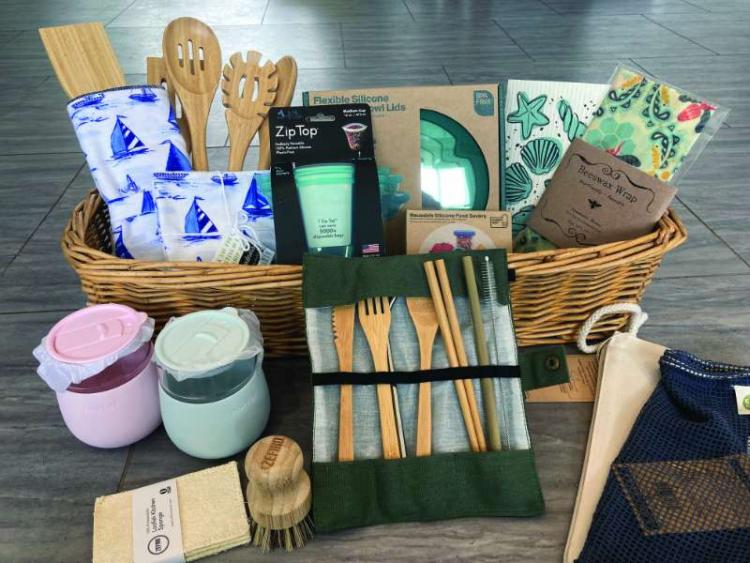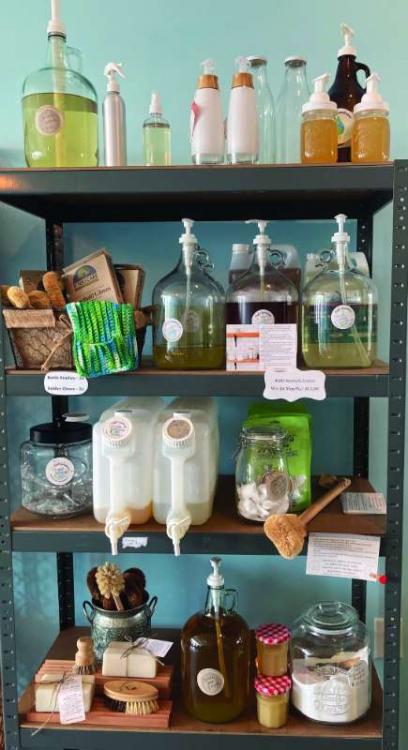Sustainability and Sailing: 7 Things You Can Do
“RRRRRRR” said the sustainable salty sailor. Perhaps you did not realize that the classic three “R’s” (reduce, reuse, recycle) has expanded to seven and that the current state of recycling in the United States puts that “R” at the bottom of the list. With five waterwheel-powered trash interceptors (the family business) removing tons of plastics from our rivers, I spend quite a bit of time thinking about the impacts of plastics and plastic production on human health, on our climate, and on our rivers and oceans.

With its reliance on oil and gas extraction, as well as the polluting production process, the U.S. Plastics Industry emits 262 million tons of greenhouse gases annually (Sierra Magazine Spring 2022). Half of all these plastics is single use, and only a paltry nine percent is actually recycled. Unfortunately, the promise of “It is okay; it is recyclable” has put the responsibility of cleaning up the pollution on the consumer, while allowing the production process itself to remain unscrutinized.
Companies and businesses should be held accountable for creating a circular economy for their products, as well as for seeking alternatives to fossil fuels. Lawmakers need to support the Break Free from Plastic Pollution Act which addresses the issue at the federal level. Many states are taking their own initiatives at the local level, from plastic bag to polystyrene bans.

By its space-constrained nature, living aboard a sailboat forces a careful consideration of every object that gets stowed aboard. A review of the seven “R’s” can help sailors make their own progress towards living a sustainable and more plastic free life.
- REFUSE: This can range from refusing to buy something that is over packaged (hello triple-wrapped broccoli on a plastic tray) to refusing a plastic bag and bringing your own reusable one, or refusing to buy something new until you have used what you already have (this is a tough one for me for some reason.)
- REDUCE: Sailors are already pretty good at this one… there isn’t enough space to carry excess anything.
- REUSE/REPURPOSE: Can the jar from your pickles hold your collection of spare nuts and bolts? Can that Mount Gay Rum bottle hold your homemade deck cleaner? See sailorsforthesea.org/programs/green-boating-guide/non-toxic-cleaning-products for recipes for deck cleaners as well as recommendations for green cleaning products. Also, consider if you can borrow/swap/thrift before buying something new! Surely someone in the marina might have just what you need.
- REPAIR: We do that. Too expensive not to; enough said.
- REFILL: Local refill options are available in the middle Chesapeake region. From dish soap to laundry soap to shampoo to sunscreen, you can bring your own jar and fill it over and over with your favorite eco-friendly cleaning products! Find sustainable swaps with eco or zero packaging as well at refillgoodness.com or shop their Stevensville store or many farmer’s market pop-ups.
- RECONSIDER: Sustainable swaps for plastic abound. Here are some favorites for down below:
Galley: Bamboo utensils, Swedish dish cloths (replaces paper towels), silicone storage bags, beeswax wrap, loofah sponges, dish soap brick.
Head: Toothpaste tabs (never buy toothpaste again! Over one billion toothpaste tubes are thrown away into landfills annually in the U.S.), shampoo and conditioner bars, shaving bars, all metal razors, bamboo toothbrush, and floss.
Laundry: Why lug the jug? Laundry detergent now comes in lightweight sheets in a cardboard box. - And of course RECYCLE!
FaiRRRRRR winds and plastic-free seas!
~by Pamela Tenner Kellett
Find more environmentally focused articles here.




